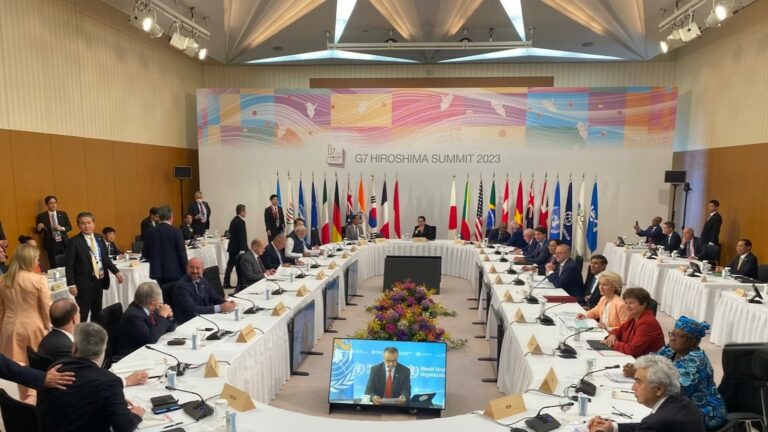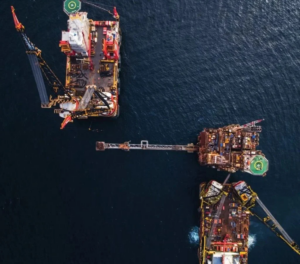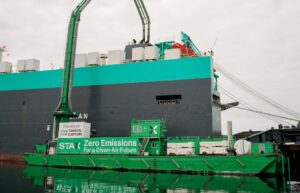G7 upping the green and low-carbon ante while gas is still king of energy throne
The G7 summit in Hiroshima under Japan’s 2023 Presidency of the Group of Seven (G7) has brought together global leaders in a bid to step up international efforts to strengthen energy security and tackle climate change amid complex geopolitical challenges. On this mission, the G7 stresses the role gas, especially LNG, can play in propelling the transition to clean energy forward. In addition, ramping up renewable deployment is seen as a key piece in this quest for a sustainable and low-carbon energy future.

The summit, during which the G7 underscored its commitment to “holistically addressing energy security, the climate crisis, and geopolitical risks,” was chaired by Japanese Prime Minister, Fumio Kishida, under Japan’s 2023 Presidency of the G7. The event was attended by leaders of G7 members as well as those of Australia; Brazil; Comoros, the current Chair of the African Union; the Cook Islands, the current Chair of the Pacific Islands Forum; Korea; India, the current Chair of the G20; Indonesia, the current Chair of ASEAN; and Vietnam while President Volodymyr Zelensky of Ukraine also took part in a special session on Sunday.
Tackling the current energy crisis and achieving the common goal of net-zero emissions by 2050 is no easy feat, thus, the G7 highlighted – what it described as – “the real and urgent need and opportunity to accelerate clean energy transitions also as a means of increasing energy security.” This recognises the role the acceleration of the deployment of renewable energies and the development and deployment of next-generation technologies can play to usher in the much-anticipated era of low-carbon energy.
Therefore, the G7 intends to expand renewable energy globally and bring down costs by strengthening capacity, including through a collective increase in offshore wind of 150 GW by 2030, based on each country’s existing targets, and a collective increase of solar PV to more than 1 TW by 2030.
The development and use of low-carbon and renewable hydrogen and its derivatives such as ammonia is seen as a positive step in the energy transition journey, as long as it can be aligned with a 1.5 °C pathway. These fuels of the future are seen as important pieces on the energy mix’s chessboard of emission reduction tools to advance decarbonisation across hard-to-abate sectors and industries while avoiding N2O as a GHG and NOx as an air pollutant.
Furthermore, the G7 will work on enhancing its efforts to develop “the rule-based, transparent global market and supply chains” for low-carbon and renewable hydrogen based on “reliable international standards and certification schemes adhering to environmental and social standards.” While reaffirming its commitment to achieving “a fully or predominantly” decarbonised power sector by 2035, the leaders will prioritise steps towards accelerating the phase-out of domestic unabated coal power generation in a manner consistent with keeping a limit of 1.5°C temperature rise within reach.
“We call on and will work with other countries to end new unabated coal-fired power generation projects globally as soon as possible to accelerate the clean energy transition in a just manner. We highlight that we ended new direct government support for unabated international thermal coal power generation in 2021. We call on other countries, especially major economies to join us in fulfilling their commitments to do the same,” urged the G7.
Moreover, the leaders believe that carbon capture, utilisation and storage (CCUS) and carbon recycling technologies have the potential to play an important part in a broad portfolio of decarbonisation solutions to reduce emissions from industrial sources that cannot be avoided otherwise while the deployment of carbon dioxide removal (CDR) processes with “robust social and environmental safeguard” can be an essential tool in counterbalancing residual emissions from sectors that are unlikely to achieve full decarbonisation.
Those who gathered at the summit vowed to accelerate the phase-out of unabated fossil fuels to reach net-zero in energy systems by 2050 and reaffirmed their commitment to the elimination of “inefficient” fossil fuel subsidies by 2025 or sooner.
Related Article
-
G7 countries to end public funding for international fossil fuels projects
Business & Finance
“It is necessary to accelerate the phase-out of our dependency on Russian energy, including through energy savings and gas demand reduction, in a manner consistent with our Paris commitments, and address the global impact of Russia’s war on energy supplies, gas prices and inflation, and people’s lives, recognising the primary need to accelerate the clean energy transition,” underscored the leaders.
In light of this, the G7 underlines that increased deliveries of LNG can play an important role in the energy arsenal while pointing out that investment in the sector would be appropriate to address potential gas market shortfalls provoked by the energy crisis.
With the wheels in motion to accelerate the phase-out of the dependency on Russian energy, publicly supported investment in the gas sector is considered to be appropriate as a temporary response, if implemented in a manner consistent with the climate objectives without creating lock-in effects by ensuring that projects are integrated into national strategies for the development of low-carbon and renewable hydrogen.
“Those G7 countries that opt to use nuclear energy recognise its potential to provide affordable low-carbon energy that can reduce dependence on fossil fuels to address the climate crisis and to ensure global energy security as a source of baseload energy and grid flexibility. They commit to maximising the use of existing reactors safely, securely, and efficiently, including by advancing their safe long-term operation, in addressing the current energy crisis,” added the G7.
While explaining that the global climate and energy crisis stripes bare the urgent need to accelerate the clean energy transition towards achieving net-zero emissions no later than 2050 and to transform energy systems, the leaders put an emphasis on the necessity of economic diversification and transformation, including in supply chains. To this end, the G7 will pursue “secure, resilient, affordable, and sustainable” clean energy supply chains.
Related Article
“In implementing energy transitions, we also reaffirm the importance of working collectively to avoid market distortions and ensuring a global level playing field. We will continue to work with international partners to realise a clean energy economy through 18 concrete actions as laid out in the Clean Energy Economy Action Plan,” elaborated the G7.
Additionally, the leaders hammered home their concerns about “the accelerating and intensifying impacts of climate change,” by referring to the latest findings of the Intergovernmental Panel on Climate Change (IPCC) and its Sixth Assessment Report (AR6), highlighting the urgency to reduce global GHG emissions by around 43 per cent by 2030 and 60 per cent by 2035, relative to the 2019 level.
“We reaffirm our commitment to the Global Methane Pledge and we will step up efforts to collectively reduce global anthropogenic methane emissions by at least 30 per cent below 2020 levels by 2030. We commit to actively contributing to securing the most ambitious outcomes of the first global stocktake (GST) at UNFCCC-COP28, which should result in enhanced, immediate and ambitious actions across mitigation, adaptation, means of implementation and support,” stated the G7.
While being adamant about taking action to rapidly implement domestic mitigation measures aimed at achieving its Nationally Determined Contribution (NDC) targets, as emissions have already peaked in all G7 countries, the leaders have called on all players, especially major economies, to revisit and strengthen the 2030 NDC targets and publish or update their LTSs before UNFCCC-COP28, and commit to net-zero by 2050 at the latest.
“Through this Clean Energy Economy Action Plan, we will work together to create trade policies that decarbonise our economies, accelerate the development of resilient clean energy supply chains, grow shared markets for clean energy goods and services, and mobilise significant public and private sector climate and energy security investments for our LMIC partners. We will engage in this work with partner countries around the world to overcome our shared energy and climate challenges and ensure a more stable and prosperous future,” highlighted the G7.
Bearing in mind the findings of the International Energy Agency‘s Energy Technology Perspective 2023, the leaders reaffirmed their commitment to strengthening global efforts to achieve GHG lifecycle zero emissions from international shipping by 2050 at the latest.
Related Article
-
G7 ministers push for shipping to attain zero GHG emissions by 2050
Authorities & Government
“We commit to support this target and introducing intermediate targets for 2030 and 2040 for the revised International Maritime Organization (IMO) GHG reduction strategy, in line with efforts to limit the temperature increase to 1.5 °C above pre-industrial levels through a credible basket of measures,” concluded the G7.
Building clean energy economies of the future
In a separate statement, the White House outlined that President Joe Biden had delivered “an ambitious clean energy agenda” centred around “bold public investment” and working with partners to build secure and resilient supply chains. The White House claims that this was the first G7 summit where the President of the United States could “unambiguously” say that the U.S. is on a path to meet its Paris climate commitments, thanks to the Inflation Reduction Act (IRA).
The G7 leaders acknowledged that achieving the goals of the Paris Agreement requires significant new incentives, industrial policies, and public as well as private investments. As a result, they committed to working together to ensure regulations and investments to make clean energy technologies more affordable for all nations and help drive “a global, just energy transition for workers and communities that will leave no one behind,” said the White House.
The G7 summit in Hiroshima also enabled Dr Fatih Birol, Executive Director of the International Energy Agency, to highlight the rapid global progress taking place in clean energy deployment along with the need to take action to ensure that “the path to net-zero emissions is as fast and secure as possible.”
While underlining that the clean energy economy is emerging much faster than many people realised, Birol went on to discuss the actions needed to ensure that the geopolitically-driven energy security risks around oil and gas that have become part of the global energy landscape since the 1970s are not repeated in the case of clean energy.









